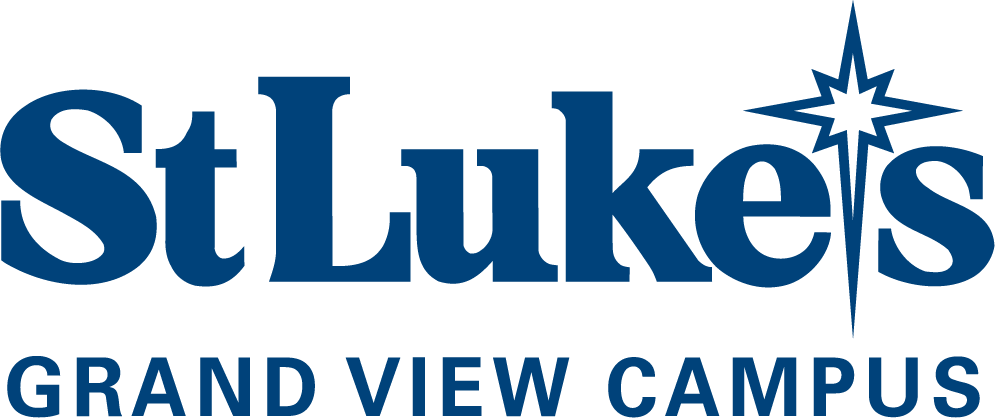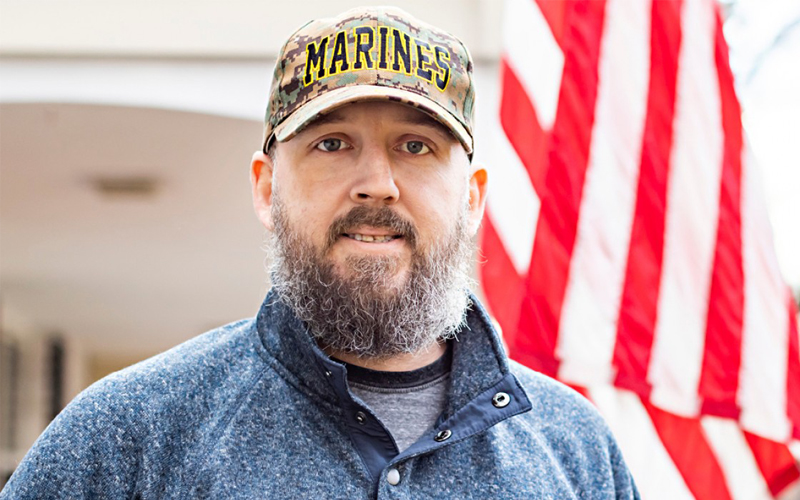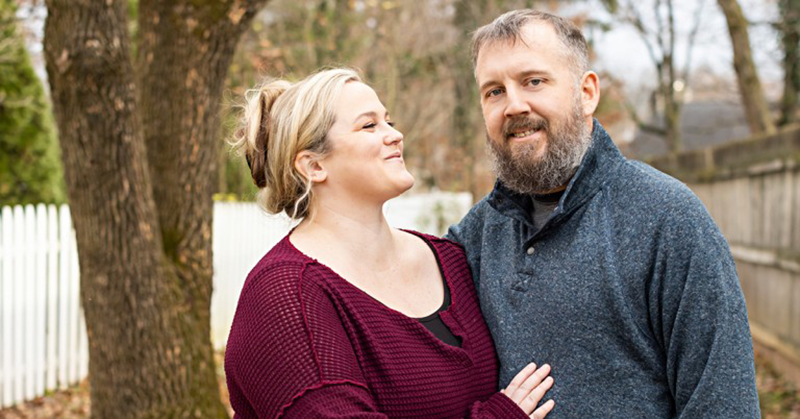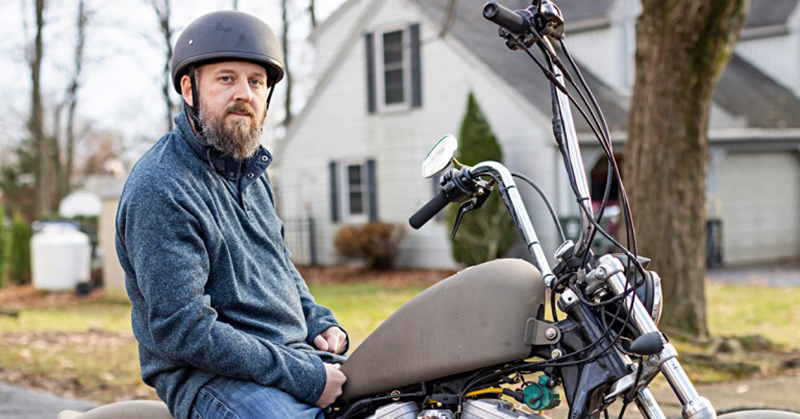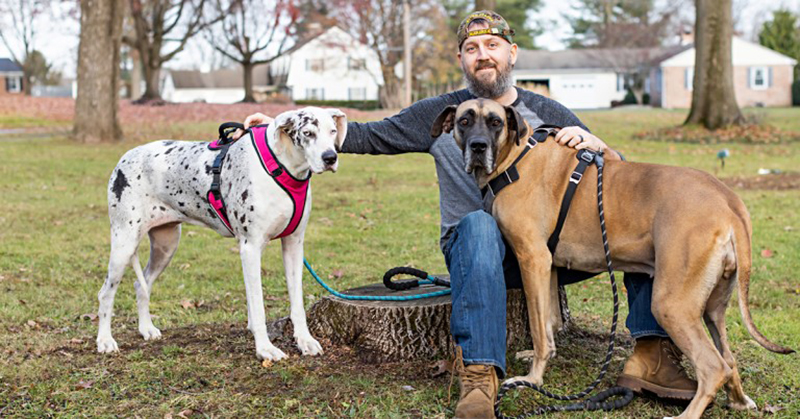A totally blocked artery stopped David Byrne’s heart and nearly took his life on April 22, 2021.
Those around him — from his wife to local police and emergency medical responders, to Grand View Health and Lehigh Valley Health Network (LVHN) doctors and cardiac intensive care – had other ideas. On their watch, they would do everything possible to save him.
Frightening morning
The 38-year-old welder felt terrible when he woke up. He had bad indigestion and chest discomfort but chalked it up to eating spicy chicken wings the night before. Still, at 5:30 a.m., he left his home in Perkasie, Bucks County, for a roughly 45-minute drive to his job for rail freight transportation company CSX in Langhorne. Shortly after arriving, he went home, too sick to work.
He decided to take a shower. Moments later, he crashed to the shower floor where his wife of just four months, Jillian, found him, unconscious. His heart had stopped.
She dialed 911.
The dispatcher calmly instructed her to begin CPR.
“In the moment, I didn’t think about anything else but getting him to breathe,” says Jillian.
Perkasie police officer Ray Fox and Hilltown Township officer Jim Browne were first on the scene. They got Dave out of the shower and took over CPR duties. He was still in cardiac arrest. They used an automatic defibrillator to try to get Dave’s heart going by delivering multiple electrical shocks to his chest. Medic 151 responded moments later and paramedic Scott Huttenlock and EMT Tania Breithaupt defibrillated Dave several more times during the 3 ½ mile ride to Grand View Hospital in Sellersville.
At the hospital
Grand View Health has a partnership with LVHN, started in late 2019, for LVH Cardiology to provide around-the-clock interventional cardiology coverage of Grand View Health’s cardiac catheterization lab. LVHN cardiologists, assisted by nurses and technicians from Grand View Health, perform procedures including stent placements, and vascular procedures.
Interventional cardiologist Shailendra Singh, MD, Co-Director of Interventional Vascular Cardiology at Lehigh Valley Heart and Vascular Institute, was on duty at Grand View Hospital that day.
Once at the hospital, Dave’s heart had regained rhythm, but his breathing was labored, and his oxygen level was very low which required immediate intubation with mechanical ventilation. An electrocardiogram (ECG) confirmed Dave’s heart attack and tests showed his left anterior descending artery was totally blocked, which caused his cardiac arrest. A cardiac arrest caused by a heart attack involving this blood vessel is commonly referred to as a “widow maker” because of the high mortality rate, especially in cardiac arrest that occurs outside the hospital.
“Dave’s heart function decreased dramatically to 10% of what it should have been. Therefore, it was imperative to immediately fix the blockage while assessing if further therapies were necessary, such as a heart pump (officially called a left ventricular assist device), to allow the heart to recover while providing good blood flow to his organs and the rest of the body,” says Singh.
Singh immediately took Dave to the Cardiac Catheterization Laboratory at Grand View Health and within 15 minutes was fixing the left anterior descending artery blockage which also involved another branch called the diagonal artery. Due to severe cardiac shock, Dave received a heart pump.
Dave was then transferred to the cardiac intensive care unit at Lehigh Valley Hospital–Cedar Crest, accompanied by Joanne Engle, a Grand View Health Cardiac Catheterization nurse, along with paramedic Anthony Damiani and EMT Daniel Schwartz, where he remained for two months. The resources of Lehigh Valley Heart and Vascular Institute were instrumental in Dave’s recovery.
He underwent targeted temperature management (formerly therapeutic hypothermia) to ensure brain function recovery. Aside from his heart attack, he also recovered from liver and kidney damage, infections, being on dialysis for much of his time in intensive care, and even a procedure to remove blood from his lungs.
“The remarkable part is the resilience of the human body. In an out-of-hospital cardiac arrest the odds are often stacked against us, but we were very fortunate to get a great outcome with lots of prayers and help from above,” says Singh.
Directly from Dave
Dave doesn’t recall the day of his heart attack. Since he was sedated for much of his time in intensive care at LVH–Cedar Crest, Dave says he remembers just the last few weeks there. The former Marine later spent time in an acute long-term rehabilitation facility in southeastern Pennsylvania, before going home for good on Aug. 6.
He says it’s hard to define his experience in the ICU since he has little memory of it. Jillian filled him in on what he endured and the care he received. “Hearing that, there was a lot going against me,” he says. “It was one step forward and a step or two backwards. It’s sad knowing my wife and family had to see me go through this.”
He lost about 75 pounds through it all and says he’s maintained that healthier weight and improved his diet, which he confessed wasn’t the best before his heart attack.
And from Jillian
“It was very, very tough for me and our family,” says Jillian. “The first couple weeks were very touch and go. I spent every waking hour I could at his side.”
The couple praised their caregivers.
“Everyone was great,” says Jillian, who added she formed great relationships with all the LVH–Cedar Crest nurses who cared for her husband. “I asked a million questions. I wanted to be part of his recovery and I could tell they were so invested in his recovery, which was great. It was comforting for Dave and me and for our family.”
Jillian recalled meeting Singh at Grand View Hospital’s waiting room immediately after he fixed Dave’s blocked artery and installed the heart pump. “You could sense the pride he felt in his work,” she says in a social media post chronicling Dave’s medical odyssey. “He was smiling through his mask and seemed optimistic for Dave’s recovery.”
In a card to caregivers at LVH–Cedar Crest, Jillian said she and Dave were “incredibly thankful and fortunate” to have Singh as Dave’s interventional cardiologist. “It is palpable that Dr. Singh strives to achieve the very best outcomes for his patients and that he is very thorough and talented at his craft,” she writes.
More than coincidence
The Byrnes believe there was more than coincidence at work on April 22. “No luck was involved. This was something a little more than that,” says Dave.
- Jillian worked from home, so she was there when Dave collapsed.
- Dave drove to and from work that morning, but he didn’t go into cardiac arrest behind the wheel.
- Grand View Health, equipped with a new cardiac catheterization lab and team of nurses and technicians provided life-saving care close to home. There, Singh, who is specially trained in high-risk procedures, placed the small heart pump to maintain blood flow and sustain Dave’s life.
Jillian’s quick action and CPR when Dave collapsed helped save his life, but she doesn’t consider herself a hero. “I don’t think of myself that way because he’s my husband and I did what I had to do,” she says. On her social media account, she wrote, “My husband is a living miracle and inspirationally strong. I’m so proud to be his wife.”
Singh says celebrating victories like Dave’s recovery is important because it takes a team to be successful in saving someone’s life in this scenario.
“The fact that Dave is walking, talking and completely normal without any neurological consequences, is incredible,” says Singh. “Jillian has been a gem and literally one of the best caretakers I have ever seen.”
What’s next
Dave says his and Jillian’s focus is “trying to go back to living our lives, full productive lives,” and maybe starting a family.
Welding may be out as a profession when he goes back to work, but he says he’ll adjust and figure things out. “Thankfully, I’m around to make those decisions,” he says.
“We can’t thank everyone enough,” says Jillian. “We’re very appreciative of every person who had a hand in his recovery.”
